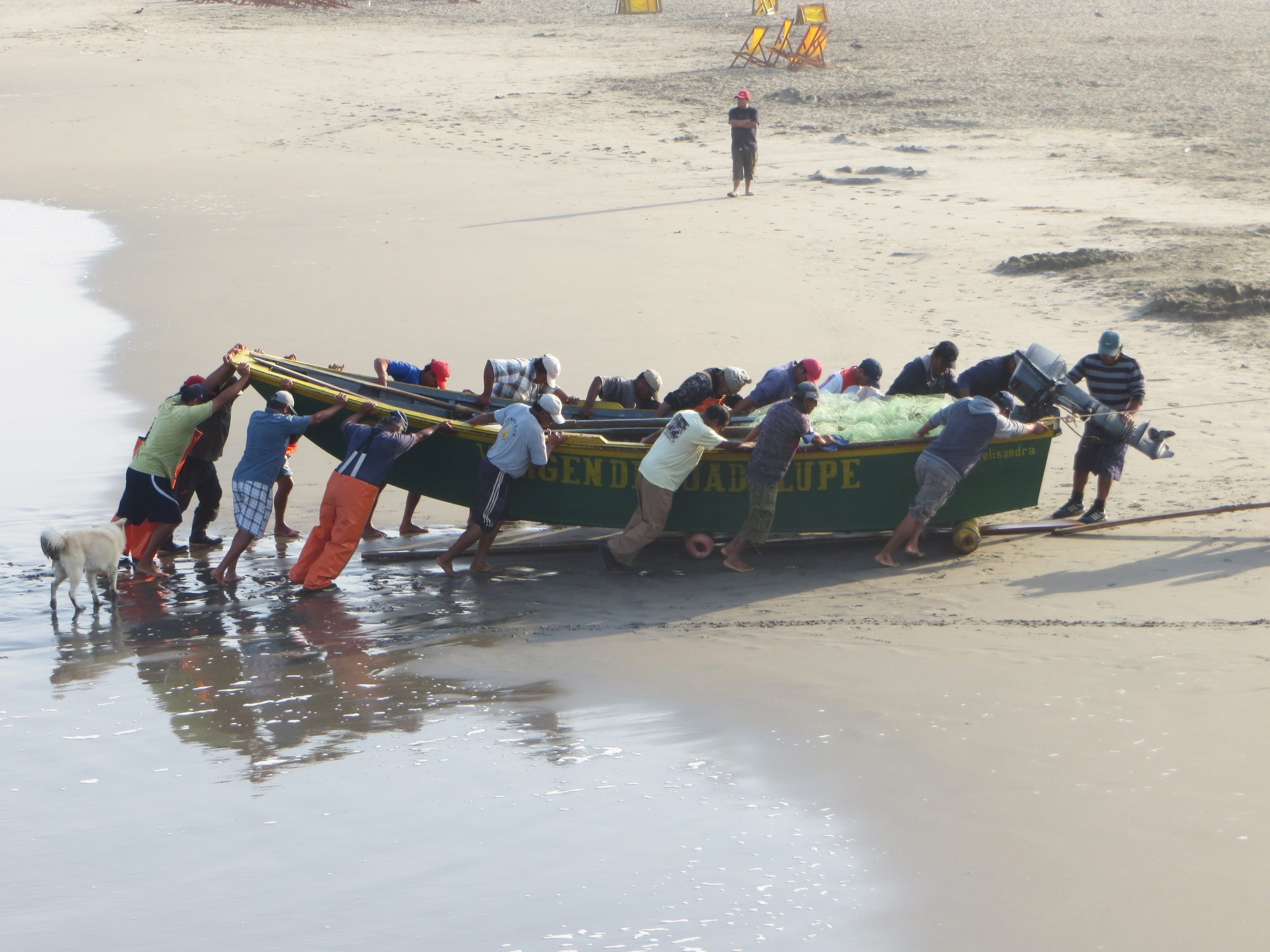
Most people work on land. Unless rocked by an earthquake, their work stations remain still. Not so for fishers. Their entire work platform rocks and rolls ceaselessly. Non-fishers cannot imagine the risks they face. Fishers work in unique conditions. There are no regular hours. On-board accommodation can be extremely cramped and unhealthy.
The difficulties don’t end when the catch is landed. Fishworkers include those in the harbours; those who process the fish and carry out post-harvest activities; those who work these into markets. Even though women carry out these activities—some even more than men—their contribution is undervalued. They work in difficult conditions, without healthcare or decent facilities, facing violence and harassment.
Trade union membership is low. Which means labour standards and legal frameworks, like those laid down by the International Labour Organization (ILO) to protect fishers, are often not to their benefit. There are also concerns worldwide about forced labour, human trafficking and exploitation of migrant labour.
ICSF has, since its inception in 1986, worked to improve the conditions of work onboard fishing vessels through legal and policy interventions. ICSF has advocated for the inclusion of small-scale fishing vessels in the ILO Work in Fishing Convention C188, which lays down binding requirements concerning work on board fishing vessels, occupational safety, health and medical care at sea and ashore, rest periods, written work agreements. ICSF has worked in partnership with FAO and ILO to address child labour issues in fishing.

Engaging with the Decent work process related to the adopted Work in Fishing Convention (WFC), 2007 has been an important part of ICSF’s work. ICSF saw engagement with the ILO process as an opportunity to focus greater attention on issues related to the conditions of work in the small-scale fisheries sector, including aspects such as safety at sea, social security, and remuneration and recognition of shore -based workers, especially women.
‘Saiko’ is a severely destructive form of illegal fishing. Foreign trawlers target the staple catch of Ghanaian canoe fishers and sell this stolen fish back to local communities. Our new...
Safety and health at work can be key to sustainable development and investment in OSH can help contribute to the achievement of the 2030 Agenda for Sustainable Development, and especially...
Through a series of 17 briefs, one for each Sustainable Development Goal (SDG), COPAC hopes to raise awareness about the significant contributions of cooperative enterprises towards achieving the 2030 Agenda...
EJF’s recent investigation, speaks to the former crew of long-line tuna fishing vessels. These testimonies reveal widespread human rights abuse and the illegal finning of sharks, including endangered hammerheads.
Vietnam has one of the fastest growing fishing fleets in the world – increasing in size by over 160% between 1990 and 2018. This explosion in the number of fishing...
This report documents forced labor and other human rights abuses in the Thai fishing sector. It identifies poor working conditions, recruitment processes, terms of employment, and industry practices that put...
The report describes how migrant fishermen from neighboring countries in Southeast Asia are often trafficked into fishing work, prevented from changing employers, not paid on time and paid below the...
This sectoral working paper discusses the various types of flexibility clauses found in the Work in Fishing convention, 2007 (No. 188), with a view to assisting those considering making use...
Strengthening the conceptual framework for poverty and natural resources management in fisheries-dependent communities, carrying out further country case studies and deepening the understanding of the link between social protection and...
The report examines Thailand’s existing legal framework for work in fishing followed by a Section-by-Section analysis of the gaps between Thai law and the definitions, scope, general principles, and provisions...